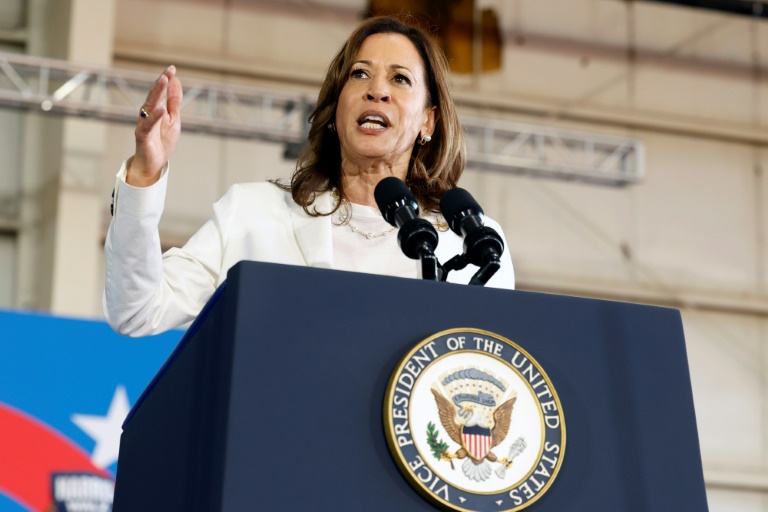US VP Kamala Harris Outlines Plan To Trim Living Costs As It Remains Americans' Top Concern

09/13/2024 11:27 AM
An August YouGov survey of over 1,500 US adults revealed that inflation and elevated prices were the most pressing issues for voters. Many were also concerned about the weakness in the US jobs markets and the overall economy. US Vice President Kamala Harris and former President Donald Trump are trying to win voters by focusing their agenda on better handling the US economy, which is neck-deep in debt. Interest payments on US national debt of $35.3 trillion surpassed $1 trillion in 2024, up 30% year-over-year, as benchmark rates remained at multi-decade highs. Despite a cooling inflation trend that may translate to a 25bps rate cut this month, food prices remain 21% higher than three years ago.
During a speech last month in North Carolina, Harris offered a glimpse into her economic agenda, which focuses on lowering living costs via several measures. She proposed banning price gouging on groceries as prices remain "too high" despite post-pandemic improvements in global supply chains. Harris also plans to help families with newborns with a $6,000 tax credit and a $25,000 downpayment assistance for some first-time homebuyers.
Harris's recent interview with CNN also revealed her plans to slash the cost of goods on her first in office. She said: "Prices in particular for groceries are still too high...The American people know it. I know it. Which is why my agenda includes what we need to do to bring down the price of groceries, what we need to do to extend the child tax credit to help young families be able to take care of their children in their most formative years, what we need to do to bring down the cost of housing."
Some Economists Think Harris's Economic Agenda Is Unrealistic
Several economists lack confidence in Harris's price-gouging ban plan to bring down prices. American Institute for Economic Research president William Ruger told Newsweek that the Democratic nominee's agenda is "unrealistic and dangerous," adding that she "can try to wish away market forces, but there will always be consequences."
"In the case of price controls, it will be shortages and the emergence of black markets," he explained before suggesting that the optimal approach to trim living costs is for the US Federal Reserve to prioritise "price stability" and the government to limit spending and "overregulating." The result will be higher production from few resources. Meanwhile, Marc Goldwein of the Committee for a Responsible Federal Budget thinks no candidate has a plan "to truly fight inflation," which involves lowering deficits, health care expenses, and improving supply in the economy.
University of Michigan economics professor Justin Wolfers highlighted that while Harris discussed her plans in detail, Trump provided no insights into how he intends to improve the economic landscape. "There is literally no detail on what policy levers Trump will pull to address the cost of living," he said.
Trump Calls Harris's Agenda A "Communist Plan"
Trump thinks Harris's price-gouging ban proposal is a "Communist Plan." During his recent speech in Wisconsin, he highlighted that Harris's plan has been implemented several times but has never worked. If Trump wins the elections, he plans to lower inflation to bring down the cost of living in the first 100 days of his second term. Considering the millions of seniors relying on Social Security benefits for their expenses, Trump proposed eradicating taxes on all Social Security payments. He also hinted at ending taxes on tips for workers.
Professor Wolfers thinks several of Trump's plans, including hiking tariffs on all imported goods by 10% and a whopping 60% on those from China, would raise living costs rather than lower them. He cited research showing that producers often pass these increased costs to the end-users. "So a 10% rise in the tax on importers will lead to a 10% increase in the price Americans pay on all imported goods, as well as a price hike in the many domestic goods that rely on imported inputs," Wolfers concluded.
